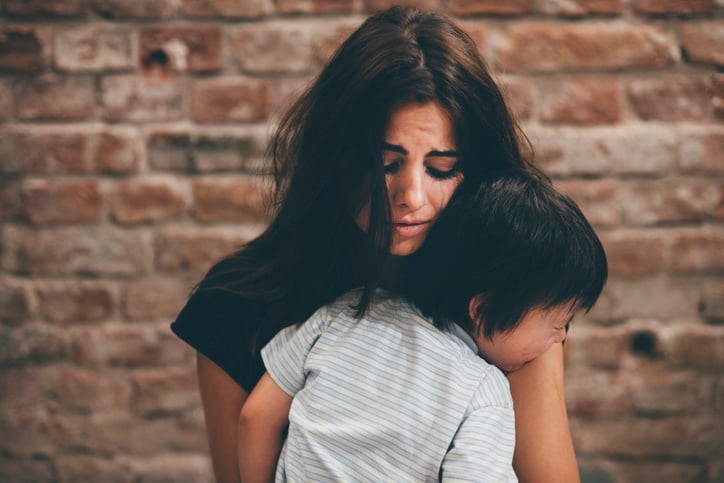
When she was diagnosed with borderline personality disorder, generalised anxiety disorder and major depressive disorder in 2014, Cape Town-based Nicole Petersen (27) was relieved.
After years of feeling “something was not right” she had a diagnosis and felt she could be “fixed”.
Five years later, she has two children, aged three years and eight months respectively, and says she gets through the day with the invaluable support of her wife, sisters and a mental health nurse, but it’s not all smooth sailing.
A strong support network
She says trying to stay positive is difficult, as she constantly worries about her children’s safety.This has placed such strain on her than she is now a stay-at-home mum. She’s also had to drop out of nursing school as a result of a breakdown.
In her lower moments she still worries that she’s not good enough for her children, and that they’d be better off with someone else.
Nicole says despite having a lot of patience with them she can snap, as her anger management skills aren’t very good. Instead she’s very soft with them, to avoid them becoming "just like me" or "ruining their lives".
"I don't want them to be sad, anxious, angry and insecure teenagers/adults," she adds.
When she is low, her support system comes to the rescue. "My wife and sisters are always there to help when they can see I'm not coping; sometimes it's just to let me go to the toilet on my own," she says.
She plays word games or does puzzles, which she says centres her mind and "brings it back down to Earth". They help to focus her concentration and block out intrusive thoughts.
And sometimes just hugging her children makes her feel better.
Discrimination from doctors and nurses
Nicole says that being a mother is very important to her and makes sure she is coping and on treatment that works for her.
She has encountered prejudice as a result of being a mentally ill parent, with a psychologist criticising her choice to have children, saying she was selfish to do so knowing she had an illness. Nicole says she won’t hesitate to give her a piece of her mind should she meet her again.
Unfortunately this isn’t the only time she’s face discrimination; she adds that most of it comes from doctors and nurses. But, she says, "I'm very lucky to have many people in my life who are willing to help even if they don't completely understand."
Despite having faced discrimination, Nicole is candid about her illness "I'm always forthcoming and even initiate conversation about it with others so that they can learn it's something very normal and not a myth."
Talking to children about mental illness
Nicole’s illness is hereditary, but despite this it’s still taboo to talk about it with the family. She says her family knew there was a problem, but even after her diagnosis her illness was not really acknowledged as 'real'.
She is taking a different approach with her children, and has researched ways to discuss her illnesses with them. She says they haven’t asked many questions as yet, but that she tells her eldest that her scars from cutting are as a result of a sickness.
She wants to be as open and honest as she can to encourage them to go to her for help and understanding should they feel the isolation, emptiness, or extreme emotions she does as a result of her illness.
Advice for other parents
Nicole has solid advice for other parents with mental illness, saying they should not be ashamed of it, and that it is "as real and as treatable as any other "physical" illness". She adds that parents should always educate their families and those around them about their illness so that they can all work together on creating "a safe and loving environment".
Without this loving and safe environment and support she says she doesn’t think she would have ever been able to be a parent.
She adds that, hopefully, now that mental illness is more openly spoken about and discussed, people will be more accepting and supportive of those suffering, and that "we will no longer have to go to extremes to find help".
Support for parents with mental illness
If you need support or assistance you can contact the South African Depression and Anxiety Support Group through their website - www.sadag.org - for details about support groups in your area.
Chat back:
Share your story with us, and we could publish your letter. Anonymous contributions are welcome.




 Publications
Publications
 Partners
Partners















